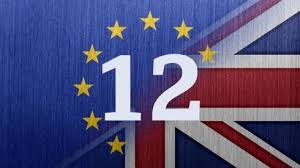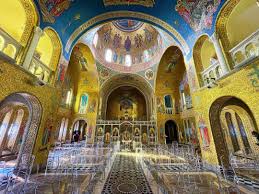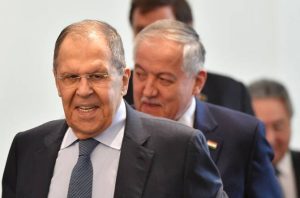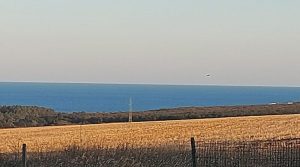12 big moments in the UK-EU relationship

1961
The UK first applies to join the European Economic Community
The United Kingdom was always one step removed from the vision of a united Europe.
It was a vision born after World War Two, with an underlying aim – to pool economic resources on a shattered and divided continent, and to make sure that war between France and Germany would never happen again.
But, from the start, a big question loomed in the background – where would Europe’s great island nation fit in? It was not until four years after the EEC was established in 1957, that the UK belatedly applied to join.
The application was motivated in part by fear of isolation as a new power bloc began to emerge in western Europe. With the Cold War against the Soviet Union firmly entrenched, governments in Paris and Bonn, and a new bureaucracy based in Brussels, were leading six countries towards ever-closer economic integration.
The UK was certainly looking for an economic boost, but it never quite shook off suspicion of the shared sovereignty that membership of the new European institutions implied. And while the British Empire was fading fast, London was also anxious to retain the independent trading links forged by its historic ties to the countries of the Commonwealth.
This sense of hesitation set the tone for decades to come. The French President Charles de Gaulle certainly smelled a rat. He vetoed the British application in 1963 and again in 1967, citing Britain’s “deep-seated hostility” towards the European project.
The UK, he once said, “is maritime; it is bound by trade, by its markets, to the most diverse array of countries – and often the most far-flung… its habits and traditions are very different.”
It was only in 1969, after de Gaulle’s resignation, that the green light was finally given for talks on British membership of the European Communities (EC) to begin.
1 January 1973
The UK joins the Common Market
Negotiations to join were just as difficult as negotiations to leave turned out to be nearly 50 years later. The UK discovered that the EC (later to become the EU) was above all a community based on rules. If you wanted to join, however big you were, you had to play by those rules.
There were arguments about sovereignty, agriculture and the free movement of labour.
Conservative Prime Minister Edward Heath was possibly the most pro-European ever to have held the office but then, as now, divisions over Europe existed in both main parties.
Labour opposed what it called the “Tory terms” of entry to the Common Market but 69 rebels, led by Shadow Home Secretary Roy Jenkins, defied their party line and voted to join the EEC.
Jenkins was greeted with cries of “traitor” from his own benches. But he later wrote: “I was convinced that it was one of the decisive votes of the century, and had no intention of spending the rest of my life answering the question of what did I do in the great division by saying ‘I abstained.’”
Others were less captivated by any sense of history. The UK joined the EC on New Year’s Day 1973 with little fanfare or ceremony – there were only small demonstrations for and against. “We’re in – but without the fireworks,” said the headline in The Guardian.
5 June 1975
UK referendum on membership of the EC
In 1974 Labour came to power under Harold Wilson, promising to renegotiate the deal and then hold a referendum.
The negotiations didn’t achieve fundamental change and in June 1975 the country’s first nationwide referendum posed the question, “Do you think the UK should stay in the European Community (the Common Market)?”
Opposition to a Yes vote included voices from the right, but it was dominated by leading Labour MPs. These included cabinet members such as Michael Foot, Barbara Castle and notably Tony Benn, who described entry into Europe as “the decapitation of British democracy”, and once said of visiting Brussels, “I felt as if I were going as a slave to Rome”.
But all major party leaders and the mainstream media campaigned for a Yes vote and the outcome was never really in doubt – a resounding 67.2% voted in favour of remaining “in Europe”.
The margin of victory was large but the argument in the No campaign’s official leaflet – that “the fundamental question is whether or not we remain free to rule ourselves in our own way” – would rumble on.
26 June 1984
The UK budget rebate is agreed
“What we are asking,” said Margaret Thatcher in 1980, “is for a very large amount of our own money back.”
Having played a leading role in campaigning to keep the UK in the EC in 1975, Thatcher’s attitude as prime minister became far more confrontational.
Launching a campaign for the UK’s budget contributions to be reduced, she declared simply, “We are giving you notice that we just cannot afford it!”
At the heart of her complaint was the UK’s contribution to the Common Agricultural Policy (CAP). A system designed to subsidise European farmers and stabilise food prices, it was always associated in British eyes with butter mountains and wine lakes, with overproduction and waste.
At the time, CAP accounted for 70% of the EU budget, but the benefits were felt far more in countries, like France, with a large agricultural sector. The UK received relatively little.
Nevertheless, it took four more years to reach a deal on what became known as the UK budget rebate, or – more contemptuously in French – “le chèque britannique”.
The rebate was permanent and worth several billion pounds a year. It could only be amended with British consent.
1 July 1986
The Single European Act comes into force
Despite her reservations about many aspects of European integration, Thatcher was also one of the driving forces behind the creation of a single European market.
In February 1986 she signed the Single European Act along with the leaders of other countries in the EC, which had now expanded to 12 member states.
In the 1980s the Common Market was still littered with national barriers to trade and Thatcher’s goal was simple – to open up Europe fully to British exporters.
“A single market without barriers – visible or invisible,” she told business leaders in 1988, “giving you direct and unhindered access to the purchasing power of over 300 million of the world’s wealthiest and most prosperous people.”
But where she saw “Thatcherism on a European scale” others, led by the Commission’s influential President Jacques Delors, saw something quite different.
The Single European Act set a deadline for creating a genuine single market by 1992, but it also deepened prospects for political integration, making it easier for European laws to be passed, and for common European foreign and home affairs policies to emerge.
For the founding fathers of European cooperation, like Jean Monnet, this was always part of the plan.
“Continue continue,” Monnet was often quoted as saying, “there is no future for the people of Europe other than in union.”
Right: European leaders in Luxembourg, December 1985, ahead of talks leading to the Single European Act
20 September 1988
Margaret Thatcher’s Bruges speech
“We have not successfully rolled back the frontiers of the state in Britain, only to see them re-imposed at European level, with a European super-state exercising a new dominance from Brussels.”
Margaret Thatcher’s words at the College of Europe in Bruges were a defining moment in the UK’s relationship with the project of European integration.
It was not an isolationist speech – quite the opposite. Thatcher spoke passionately about the UK’s long European history.
“The UK does not dream,” she said, “of some cosy, isolated existence on the fringes of the European Community. Our destiny is in Europe, as part of the Community.”
But it should be based, she insisted, on willing and active cooperation between independent sovereign states.
Shortly before she was forced to step down as prime minister in 1990, she responded to the plans for further integration, laid out by Delors, with three words delivered in a packed House of Commons: “No, no, no.”
The Sun newspaper echoed this sentiment, with an even more direct message: “Up Yours, Delors.”
7 February 1992
The Maastricht Treaty is signed
The goal of ever closer union was never abandoned, and the Maastricht Treaty was a step change in European integration.
It created the EU, laid the foundation for a single European currency and established the European Central Bank.
It also introduced the idea of European citizenship, created a common foreign and security policy, and closer co-operation on police and judicial issues.
The reaction in the UK was explosive.
To try to placate an increasingly vocal eurosceptic wing in his own party, Thatcher’s successor John Major had negotiated opt-outs for the UK on joining the euro, and on the social chapter, dealing with issues like workers’ rights and health and safety.
But that wasn’t enough for rebellious backbenchers, or the critics within his own cabinet (whom he was once caught unawares referring to as “bastards”).
With only a small majority in Parliament, Major spent more than a year narrowly fending off attempts to stop the treaty being adopted in British law.
The battle over the UK’s place in Europe would continue to dominate Conservative politics for the next 25 years.
And among those who resigned from the Tory party in protest against Maastricht was a former commodities broker named Nigel Farage.
1992
Black Wednesday
In the midst of the Maastricht drama, another seismic event took place which deepened political divisions over Europe.
“There are more myths about Black Wednesday than the Greeks ever created,” Major observed many years later. But it was a political humiliation from which his government never recovered.
Black Wednesday was the day the UK crashed out of the European Exchange Rate Mechanism (ERM), a forerunner of the euro. The ERM was designed to keep exchange rates stable between European member currencies, by pegging their value to the Deutsche mark.
Sterling had joined in 1990 but by September 1992, foreign currency speculators (most famously, George Soros) were betting against sterling being able to stay in the ERM.
Despite spending billions trying to support it, and announcing that interest rates would rise to 15%, by the evening of 16 September, the government had to admit defeat.
The UK left the ERM and the value of the pound was allowed to fall sharply.
“Out of Control” and “On Skid Row” were two of the more polite headlines at the time, although many economists argue that Black Wednesday marked the start of an economic upturn for the UK.
It also crystallised visceral opposition inside the Conservative party to big European projects and helped set the UK on the long road to Brexit.
1 January 2002
Euro notes and coins are introduced
The single currency was the EU’s most ambitious project, but the UK wasn’t in it.
The euro was launched in 1999 but it was not until New Year’s Day 2002 that the new currency became a daily reality for 300 million citizens in 12 countries.
“We are witnessing the dawn of an age that the people of Europe have dreamed of for centuries,” said the German Chancellor Gerhard Schroeder. “Borderless travel and payment in a common currency.”
The curious queued at cash machines at midnight, there were mutterings of price rises by stealth, but the drachma and the franc, the lira and the mark were all being phased out.
The UK had opted not to join.
The Labour Chancellor Gordon Brown devised five economic tests to assess the UK’s readiness to take part in monetary union – tests that were never satisfactorily met.
Later, Brown wrote: “I was ready to resign as Chancellor if I was unable to persuade my colleagues of the grave risks of taking us immediately into euro membership.”
It was soon to become unthinkable as the eurozone was embroiled in financial crisis in Greece and elsewhere.
But the euro stabilised and, at a cost, it survived. By the time the UK voted to leave the EU in 2016, 19 countries were members of this club within a club – the inner circle of European integration.
1 January 2004
EU enlargement
Every night, they came by the coachload. Polish workers streamed into the UK after the post-war political division of Europe – into east and west – finally came to an end.
The European Union’s most ambitious enlargement ever took place on a sunny May Day in 2004. Ten new member states joined – eight of them former communist countries in eastern and central Europe.
Prime Minister Tony Blair called the “Big Bang” a “great opportunity for Britain”.
“The countries coming into Europe share our view of a Europe of independent nation states,” he said, “working together for the common good of all.”
But there were now huge disparities of income within the EU and only three countries – the UK, Ireland and Sweden – opened their labour markets to citizens of the new member states immediately, without any restrictions.
Over the next few years hundreds of thousands of eastern Europeans came to live and work in the UK, changing the debate on immigration, free movement and open borders.
The UK Independence Party (UKIP) began to make headway by linking immigration and EU membership in its election campaigns.
UKIP came third in the European elections in 2004. A decade later, led by Farage, it came first.
13 December 2007
The Lisbon Treaty is signed
When EU leaders gathered in the 16th Century monastery of Jerónimos to sign the Lisbon Treaty, the British Prime Minister Gordon Brown wasn’t even there.
He turned up three hours late and eventually signed the treaty on his own.
His “beneath the radar” approach to a big European moment rather summed up the growing ambivalence of the UK’s position.
Lisbon was designed to streamline EU institutions to make them work more smoothly. But critics in the UK saw it as a further threat to national sovereignty, not least because it resurrected many elements of a failed attempt in 2004 to introduce an EU constitution.
The word “constitution” disappeared from the 2007 treaty, as did any written reference to a flag or an anthem. Ramification in the UK came via a vote in parliament, despite bitter criticism from Eurosceptics.
“Every time the people have insisted on a halt to integration,” Nigel Farage wrote of Lisbon, “they have been force-fed yet more.”
23 January 2013 : Cameron promises an In/Out referendum
Stop “banging on about Europe”, David Cameron urged his party in 2006, a year after being elected leader.
But during 13 years in opposition, Conservative eurosceptic voices grew ever louder, as did . pressure to give the people a say on Europe.
So when Cameron came to power as prime minister in 2010, he was determined to lance the boil.
In January 2013 – at the headquarters of Bloomberg in London – he pledged to renegotiate the UK’s relationship with the EU and then hold an In/Out referendum on membership, if his party won the next election.
“It is time to settle this European question in British politics,” Cameron announced. “I say to the British people: this will be your decision.”
His critics accused him of taking a huge gamble. Headlines had been dominated for the past few years by the eurozone crisis, and increasingly by stories of the many people fleeing Syria and elsewhere for Europe, overwhelming the EU’s ability to cope and threatening its unity.
But the Conservatives won the 2015 general election, and Cameron was bound by his promise.
His promised renegotiation of the UK’s terms of membership proved, politically, to be a damp squib – the most the EU was able to offer was always going to be less than the minimum the prime minister’s rebellious colleagues were prepared to accept.
Mr Cameron himself campaigned to remain in the EU, but the die was cast.





